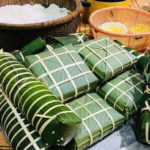Solo traveling offers you the freedom to explore and experience new things. However, maintaining a healthy and hygienic diet can sometimes be a challenge. Cooking for yourself while traveling solo is the perfect solution to overcome this hurdle. This article will share nine secrets to boost your confidence in the kitchen during your solo journey, turning it into an enjoyable and rewarding experience.
1 Opt for Accommodation with a Kitchen
The first step to realizing your cooking dreams while traveling is to find a suitable kitchen. Prioritize apartments, homestays, or guesthouses with basic kitchen facilities such as a gas stove, pots, pans, knives, and chopping boards, allowing you to comfortably showcase your culinary skills. If space is limited, consider using compact cooking appliances like induction cooktops and mini rice cookers to save space and facilitate your cooking adventures.
 Choose accommodation with a kitchen
Choose accommodation with a kitchen
2 Plan Your Travel Meals
Meal planning will help you save time and money when shopping for groceries. Spare some time to create a daily menu, opting for simple, easy-to-prepare dishes using locally available ingredients. Determine the number of meals you’ll need to cook and make a detailed list of ingredients to avoid overbuying.
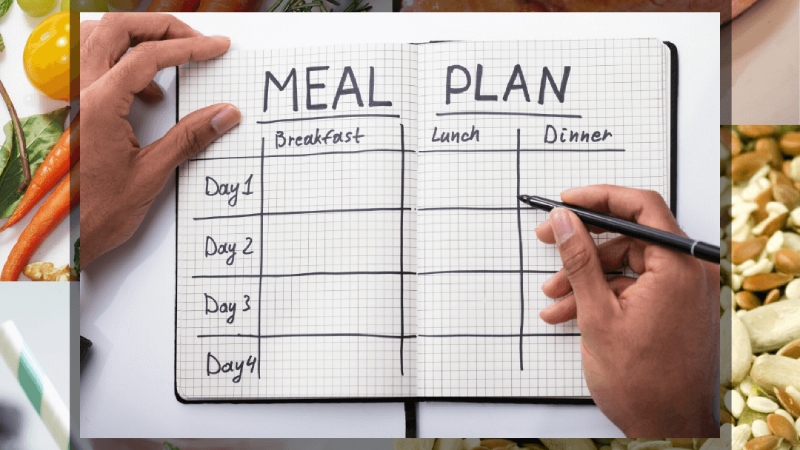 Plan your travel meals
Plan your travel meals
3 Bring Commonly Used Ingredients
Some essential spices and condiments, such as salt, pepper, sugar, oil, and vinegar, should be packed with you to season your meals to your taste. You may also bring dried herbs and unique spices to add extra flavor to your dishes.
 Bring commonly used ingredients
Bring commonly used ingredients
4 Pack Simple Cooking Utensils
A mini cooking utensil kit, including a knife, chopping board, pan, pot, and spoon, will be your handy companion in your travel kitchen. Opt for lightweight, portable, and basic cooking tools. Some suggestions for your kit include a multi-purpose knife, a silicone chopping board, a mini non-stick pan, a noodle cooker, and peeling, grating, or shredding tools.
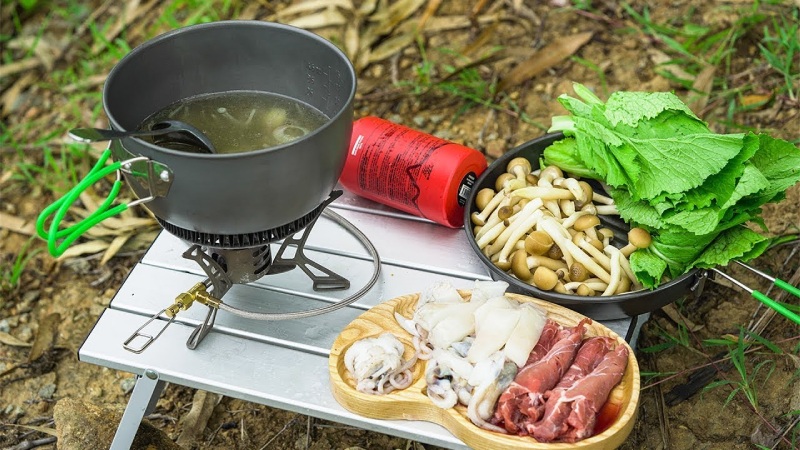 Pack simple cooking utensils
Pack simple cooking utensils
5 Explore Local Markets
Local markets are not just places to find fresh and affordable ingredients; they also offer a great opportunity to immerse yourself in the local lifestyle and interact with vendors to learn about the local food culture. Take time to wander through these markets, select seasonal produce, and don’t hesitate to ask vendors for tips on preparing traditional dishes.
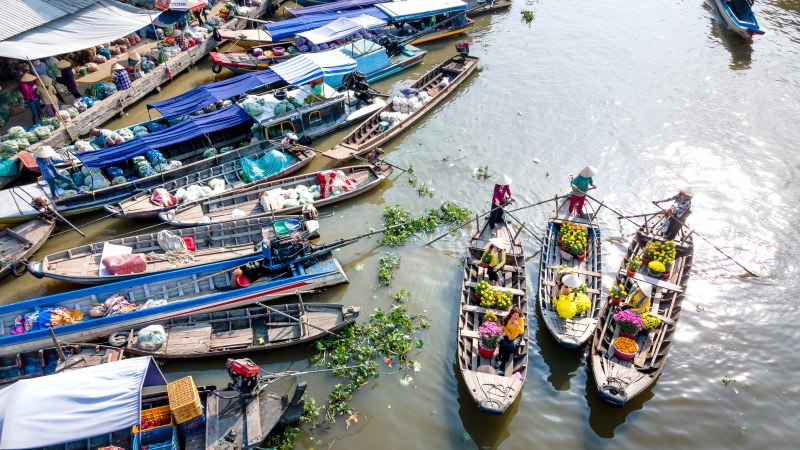 Explore local markets
Explore local markets
6 Avoid Wasteful Shopping
To prevent food waste and save money, buy only the necessary amount of ingredients for each meal. Plan meticulously and prioritize fresh produce that can be consumed or cooked on the same day to ensure quality.
 Avoid wasteful shopping
Avoid wasteful shopping
7 Repurpose Leftovers
Get creative and transform leftovers into new and exciting dishes to save time and prevent food waste. For instance, leftover rice can be used for fried rice, rice salad, or rice cakes, while boiled chicken can be turned into chicken salad or mixed with rice to make a delicious dish.
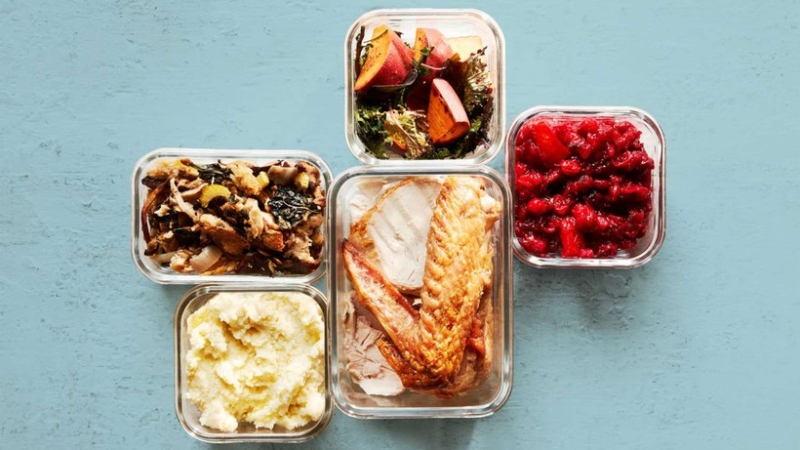 Repurpose leftovers
Repurpose leftovers
8 Prioritize Food Safety
Always follow food safety guidelines when cooking: wash your hands thoroughly before handling food, store food properly (in sealed containers at appropriate temperatures), and ensure thorough cooking to maintain hygiene.
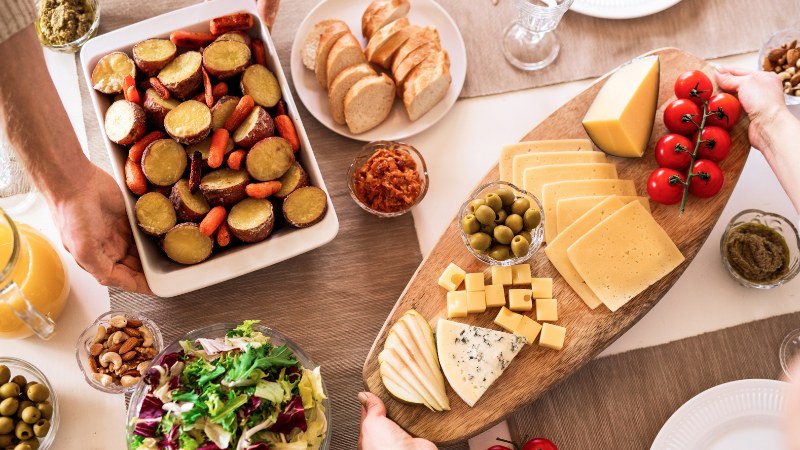 Prioritize food safety
Prioritize food safety
9 Indulge in Local Cuisine
Solo traveling provides a fantastic opportunity to fully immerse yourself in the local cuisine. Take the time to savour local specialties and engage with locals to understand the origins, flavours, and significance of each dish. Participating in short-term cooking classes is also an excellent way to learn culinary secrets from local chefs.
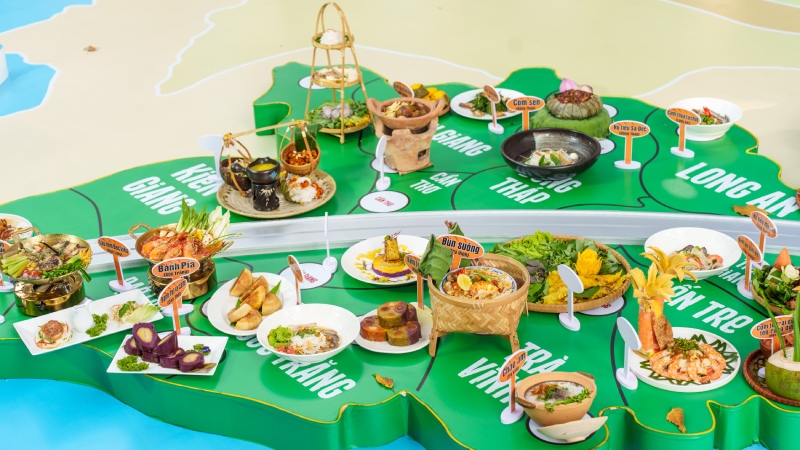 Indulge in local cuisine
Indulge in local cuisine
Cooking for yourself while traveling solo brings numerous benefits and is a rewarding experience worth trying at least once. Equip yourself with these helpful tips, plan carefully, and get ready to discover the joys of your own kitchen on the go. Happy travels and bon appétit!
8 Common Mistakes People Make with Cutting Boards
Are you using your cutting board correctly? Many Vietnamese households rely on cutting boards in their kitchen, but not everyone knows how to use them properly, especially when it comes to wooden cutting boards. Check out these 8 mistakes to avoid when using a cutting board to ensure both hygiene and safety for everyone in your family.
Is Refrigerated Leftovers Linked to an Increased Risk of Cancer?
Dr. Lam Van Man, Head of Research, Development and Technology Transfer Department of the Institute of Safety Food, has warned of the risk of food poisoning when reheating leftovers from the refrigerator. But what should we be aware of when it comes to the possibility of these leftovers causing cancer? Here, we explore what the experts have to say on the matter and offer some tips for safe eating.
Preserving Leftover Food from the Tet Holiday
With the beginning of the Lunar New Year, many households are stocking up on food to celebrate the festive occasion. While keeping food in the refrigerator is convenient, it can also be harmful to users if not done correctly. We have compiled a few tips to help ensure food remains fresh and safe to consume during Tet.



























